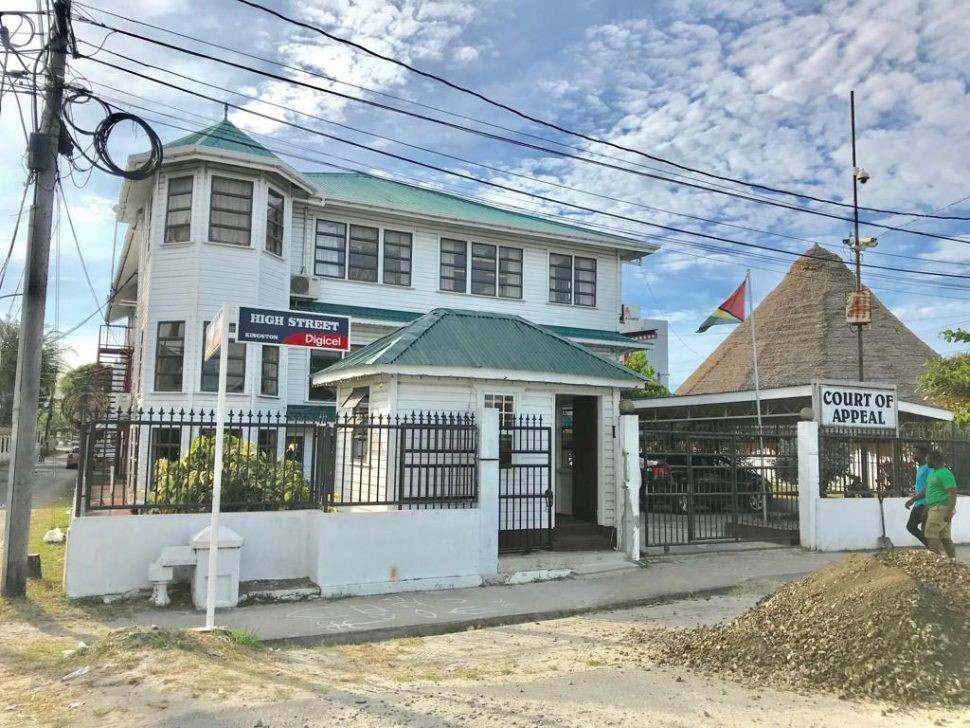In a unanimous decision, the Guyana Court of Appeal has ruled that there is no residency requirement to bar persons already on the national register of registrants from voting.
Dismissing an appeal brought by the state through Attorney General Basil Williams, acting Chancellor Yonette Cummings-Edwards and Justices of Appeal Rishi Persaud and Dawn Gregory pointed out the sacrosanct nature of the right to vote, which cannot be taken away except by the specific means for disqualification set out in the constitution.
Williams has since signalled his intention to appeal the matter to the Trinidad-based Caribbean Court of Justice (CCJ), which is Guyana’s final appeal court.
Meanwhile, attorney Anil Nandlall, who represented chartered accountant and commentator Christopher Ram, one of the respondents in the matter, said that the ruling augurs well for democracy.
Ram had previously challenged the legality of the Guyana Elections Commission’s 2019 national house-to-house registration exercise. In handing down that ruling, however, Justice George-Wiltshire had pronounced on the issue of residency and found that contrary to the state’s contention, it was unlawful to deregister previously registered persons because they were not resident in Guyana at the date of any subsequent registration.
It was this aspect of the ruling that Williams appealed.
In the delivery of its two-hour-long judgment late yesterday afternoon, the court noted that the Constitutional Amendment Act No. 4 of 1991, on which the state relied to bolster its position, was in fact not applicable. The Amendment provides: “Section 2 (e) shall be deemed to have come into operation on the 28th September, 1991, section 2(f) shall be deemed to come into operation on the 26th March, 1991.” The amendment brought to life that which did not exist.
The court found favour with Nandlall’s arguments that Act No. 4 of 1991 was a sunset provision and was only relevant for a period of three months for the circumstances of the time.
Williams had argued the converse, stating that the legislation was still currently valid and that it afforded for the residency requirement to be a prerequisite to one casting one’s ballot.
Chancellor Cummings-Edwards emphatically pointed out that residency would be a requirement for registration, but not for voting.
Justice Persaud said that the state’s reliance on this piece of legislation was “wholly misplaced and flawed.”
The judge went on to explain that Act No. 4 of 1991 had served its purpose in responding to the needs of a specific reform process at the time and was never intended to impose conditions with any degree of permanency.
The judge said that the provision needed to be looked at in that specific context; while expressing the view that it was sunset legislation.
Upholding Justice George-Wiltshire’s ruling, the appellate court declared that existing registrants cannot be excised from a new voters’ list unless they are deceased or otherwise disqualified under Article 159 (2), (3) or (4).
The court noted that Article 159 (2) (c) provides for a person to be qualified to be registered if they are 18 at the qualifying date and “satisfies such other qualifications as may be prescribed by or under any other law”.
Williams had argued that that Guyanese outside of Guyana, whether residing or otherwise, cannot vote unless they are resident in Guyana at the qualifying date of registration.
The appellate judges also pronounced on the issue raised by Senior Counsel Ralph Ramkarran who had sought to contend on behalf of Ram, that the court had no jurisdiction to hear the matter.
It was counsel’s contention that the matter needed to be brought by way of an elections petition as it touched and concerned matter connected thereto.
The court, however, rejected this argument, declaring that it did have the jurisdiction to hear and determine the challenge.
Justices Cummings-Edwards and Persaud pointed out that as a matter of fact, the case was filed long before the president had issued the proclamation announcing general and regional elections for March 2nd.
They said that the case had nothing to do with a challenge to the elections, nor anything connected thereto.
After dismissing the appeal, the judges ordered that the parties are to bear their own costs.





